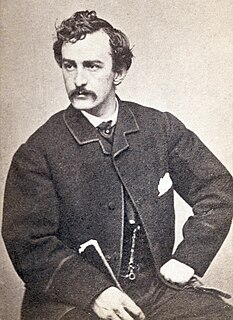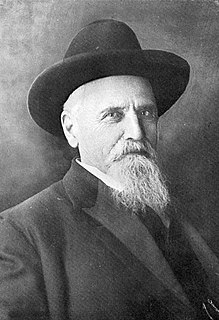 W
WThe Knights of the Golden Circle (KGC) was a secret society founded in 1854, the objective of which was to create a new country, known as the Golden Circle, where slavery would be legal. The country would have been centered in Havana and would have consisted of the Southern United States and a "golden circle" of territories in Mexico, Central America, northern parts of South America, and Cuba, Haiti, Dominican Republic, most other islands in the Caribbean, about 2,400 miles (3,900 km) in diameter.
 W
WGeorge Washington Lafayette Bickley was the founder of the Knights of the Golden Circle, a Civil War era secret society used to promote the interests of the Southern United States by preparing the way for annexation of a "golden circle" of territories in Mexico, Central America, and the Caribbean which would be included into the United States as southern or slave states. Bickley was arrested by the United States government and it was during this time he wrote a letter to Abraham Lincoln expressing his distastes with Lincoln's handling of the government.
 W
WJohn Wilkes Booth was an American stage actor who assassinated President Abraham Lincoln at Ford's Theatre in Washington, D.C., on April 14, 1865. A member of the prominent 19th-century Booth theatrical family from Maryland, he was a noted actor who was also a Confederate sympathizer; denouncing President Lincoln, he lamented the recent abolition of slavery in the United States.
 W
WElkanah Brackin Greer was an antebellum cotton planter, merchant, and then a general in the Confederate States Army who served in the Western Theater of the American Civil War.
 W
WAsbury Harpending was an adventurer and financier in San Francisco, California, Mexico, and New York City.
 W
WLambdin Purdy Milligan was a lawyer and farmer who was known for his extreme opinions on states' rights and his opposition to the Lincoln administration's conduct of the American Civil War. Believing that the Confederate states of the South had the power under the U.S. Constitution to secede from the Union, he opposed the war to reunite the nation. Milligan became a leader of the secret Order of American Knights and advocated violent revolution against the U.S. government. U.S. Army forces arrested him at his home and tried him and other conspirators by military commission for disloyalty and conspiracy. Found guilty, he was sentenced to death. A habeas corpus appeal made its way from the federal circuit court in Indianapolis to the U.S. Supreme Court, which in 1866 ruled that the application of military tribunals to citizens when civil courts are open and operating was unconstitutional. See Ex parte Milligan 71 U.S. 2 (1866). Following the Court's ruling on April 3, 1866, Milligan and the others were released from custody. He returned home and practiced law in Huntington, Indiana, where he later filed a civil suit claiming damages for the military arrest and trial. On May 30, 1871, the jury found in Milligan's favor, but federal and state statutes limited the award for damages to five dollars plus court costs.
 W
WClement Laird Vallandigham was an American politician and leader of the Copperhead faction of anti-war Democrats during the American Civil War. He served two terms for Ohio's 3rd congressional district in the United States House of Representatives. In 1863, he was convicted at an Army court martial of opposing the war, and exiled to the Confederacy. He ran for governor of Ohio in 1863 from exile in Canada, but was defeated. Vallandigham died in 1871 in Lebanon, Ohio, after accidentally shooting himself in the abdomen with a pistol, while representing a defendant in a murder case for killing a man in a barroom brawl in Hamilton.